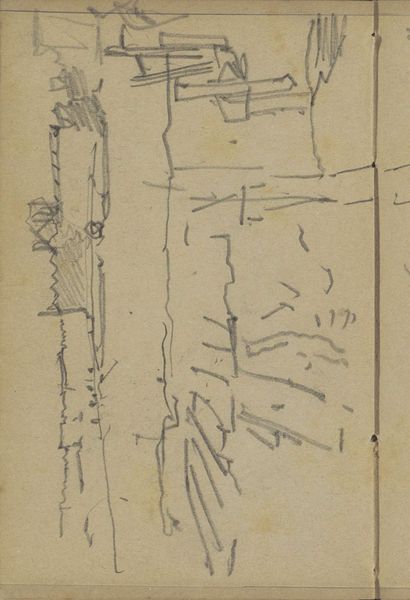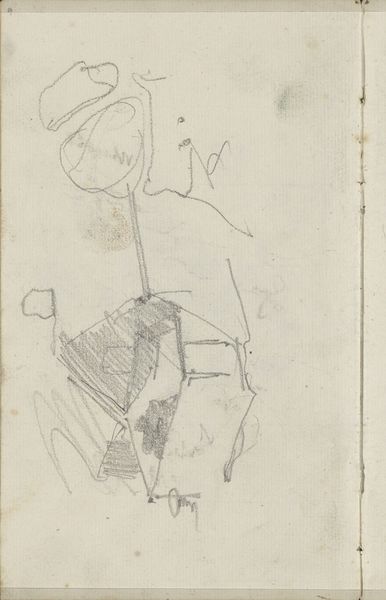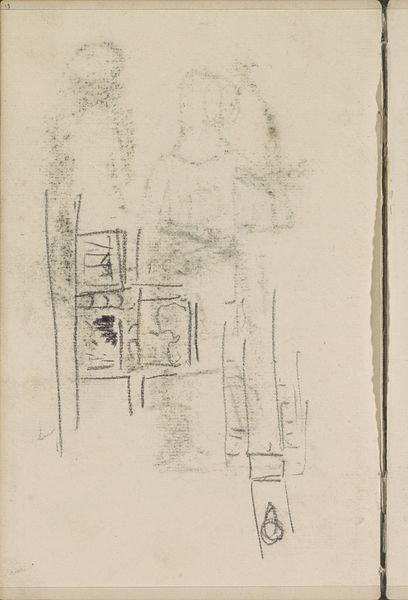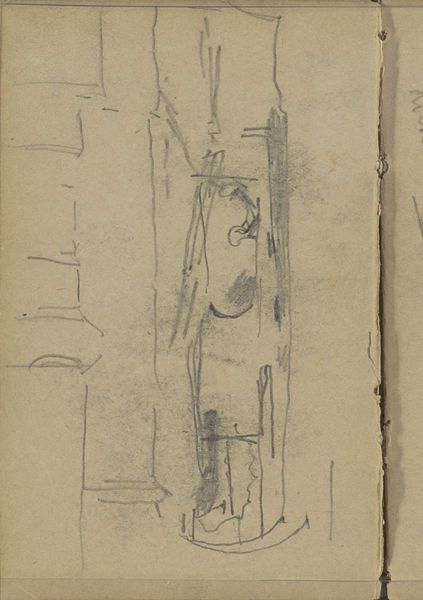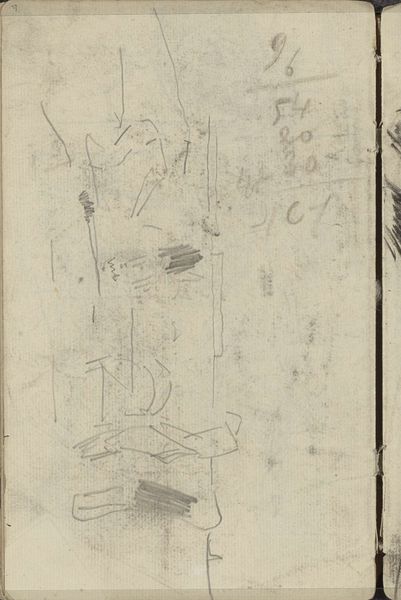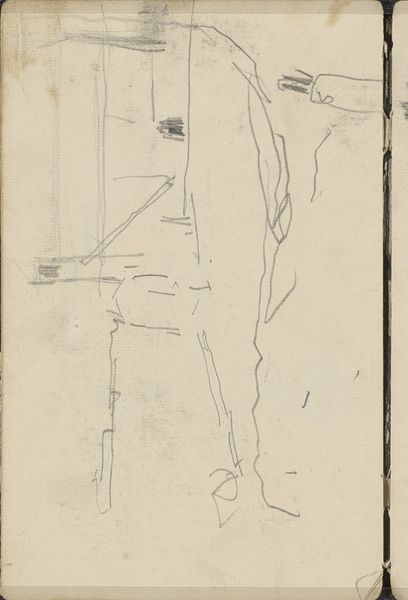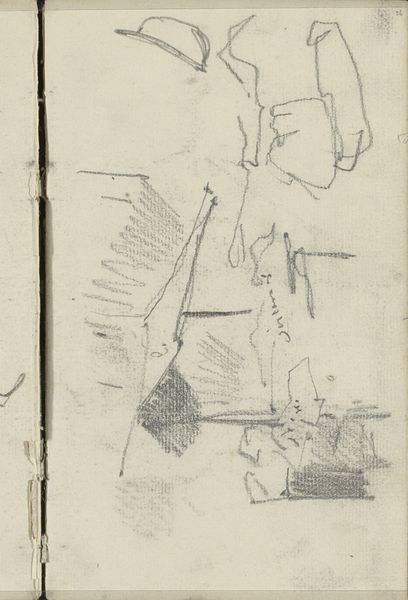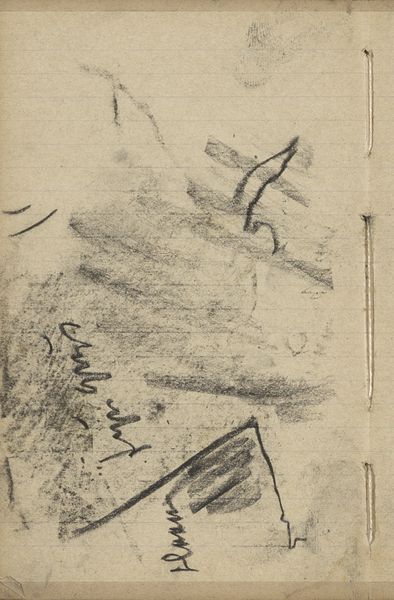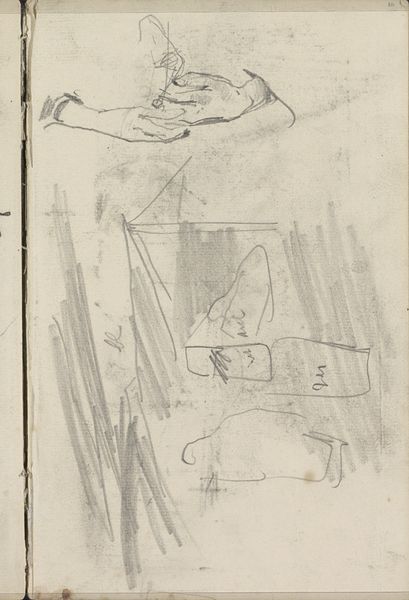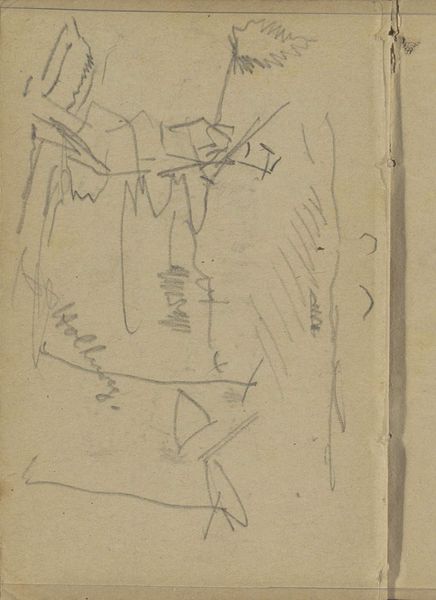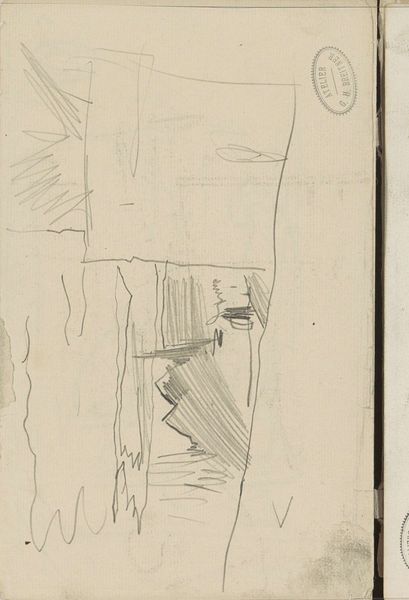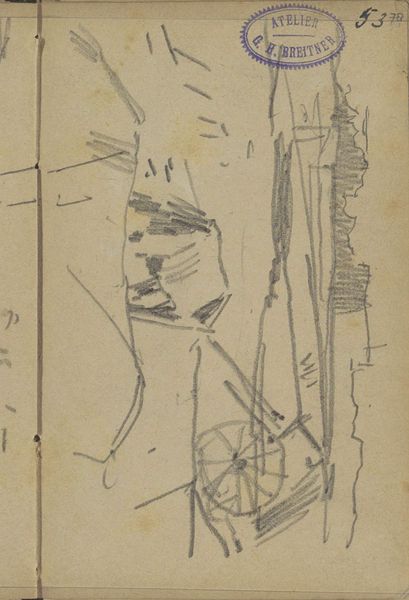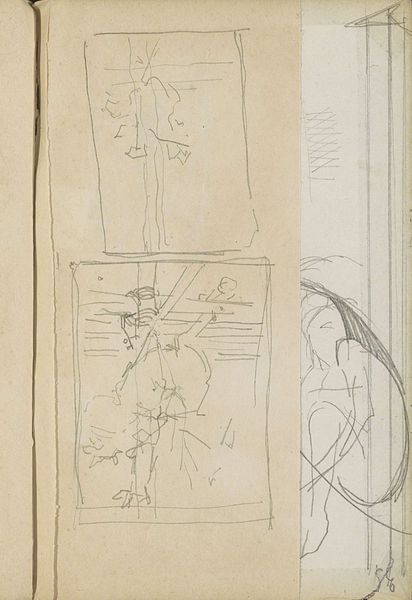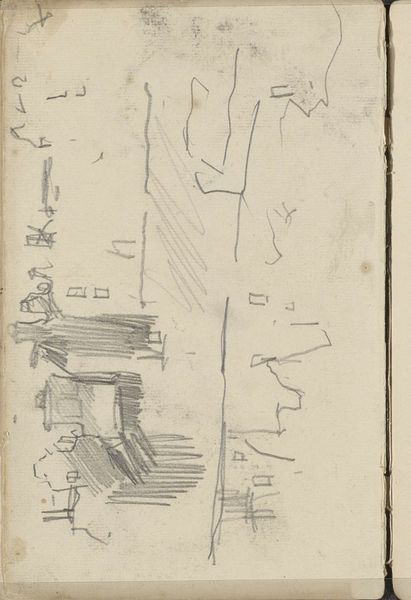
drawing, paper, pencil
#
drawing
#
toned paper
#
quirky sketch
#
impressionism
#
sketch book
#
paper
#
form
#
personal sketchbook
#
idea generation sketch
#
sketchwork
#
sketch
#
pen-ink sketch
#
pencil
#
line
#
sketchbook drawing
#
storyboard and sketchbook work
#
sketchbook art
Copyright: Rijks Museum: Open Domain
Curator: Right now, we are looking at "Studieblad, mogelijk met deuren," which roughly translates to "Study Sheet, possibly with doors," by George Hendrik Breitner, created around 1883 to 1885. It's a pencil drawing on paper, currently held in the Rijksmuseum. Editor: My initial impression is that this feels very intimate. It's not polished; you can almost sense the artist working through ideas directly on the page. The rapid lines, the smudges—it speaks to the ephemeral nature of thought itself. Curator: Indeed. These types of sketches offer unique insights. Breitner was very much a product of his time, interested in capturing modern, urban life, and artists' sketchbooks were a critical tool. Editor: Doors are potent symbols—thresholds to the unknown, transition points, both literally and metaphorically. I wonder if Breitner was specifically interested in this sense of possibility. Also I love the addition of some numbers, were those supposed to represent some proportions? Curator: You make an important observation. Doors, of course, were both physical elements in the increasingly built environment that was Amsterdam at that time, but Breitner was surely attentive to those social divisions. It's tempting to think about how a study of doors may reflect an interest in who is let in, and who is kept out of certain spaces. Also you are spot on, those numbers might be just proportion annotations! Editor: It strikes me as very much in line with Impressionistic sensibilities—the unfinished quality, the focus on light and shadow suggesting an emphasis on sensory experience. Were there popular or symbolic attributions of light around doorways in Amsterdam? Curator: Interestingly, some sources position Breitner at odds with Impressionism as practiced in France, due to its explicit embrace of pleasurable themes and subject matter. Yet here we are, the work so aligned with the same themes. Amsterdam definitely developed under some golden source of light by the ports! Editor: So it serves, paradoxically, both as an intimate record of private creativity and a reflection on public themes that still reverberate today. That's one powerful sketch. Curator: Absolutely. And understanding sketches like this offers a key to understanding the artistic and social motivations of a rapidly changing Amsterdam. Thank you for sharing these illuminating reflections.
Comments
No comments
Be the first to comment and join the conversation on the ultimate creative platform.
